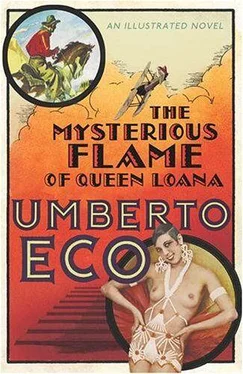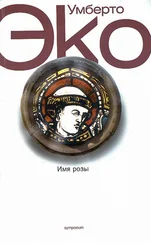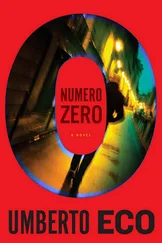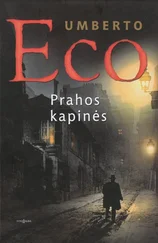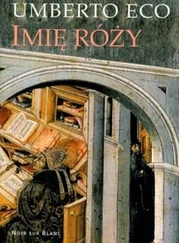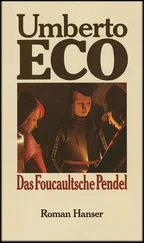Umberto Eco - The Mysterious Flame Of Queen Loana
Здесь есть возможность читать онлайн «Umberto Eco - The Mysterious Flame Of Queen Loana» весь текст электронной книги совершенно бесплатно (целиком полную версию без сокращений). В некоторых случаях можно слушать аудио, скачать через торрент в формате fb2 и присутствует краткое содержание. Жанр: Исторический детектив, на французском языке. Описание произведения, (предисловие) а так же отзывы посетителей доступны на портале библиотеки ЛибКат.
- Название:The Mysterious Flame Of Queen Loana
- Автор:
- Жанр:
- Год:неизвестен
- ISBN:нет данных
- Рейтинг книги:3 / 5. Голосов: 1
-
Избранное:Добавить в избранное
- Отзывы:
-
Ваша оценка:
- 60
- 1
- 2
- 3
- 4
- 5
The Mysterious Flame Of Queen Loana: краткое содержание, описание и аннотация
Предлагаем к чтению аннотацию, описание, краткое содержание или предисловие (зависит от того, что написал сам автор книги «The Mysterious Flame Of Queen Loana»). Если вы не нашли необходимую информацию о книге — напишите в комментариях, мы постараемся отыскать её.
The Mysterious Flame Of Queen Loana — читать онлайн бесплатно полную книгу (весь текст) целиком
Ниже представлен текст книги, разбитый по страницам. Система сохранения места последней прочитанной страницы, позволяет с удобством читать онлайн бесплатно книгу «The Mysterious Flame Of Queen Loana», без необходимости каждый раз заново искать на чём Вы остановились. Поставьте закладку, и сможете в любой момент перейти на страницу, на которой закончили чтение.
Интервал:
Закладка:
The next morning, I took a taxi to Gianni’s office. I asked him straight out what he knew about Sibilla and me. He seemed floored.
"Yambo, we’re all a bit infatuated with Sibilla-myself, your fellow dealers, lots of your clients. There are people who come to you just to see her. But it’s all a joke, schoolboy stuff. We all take turns kidding each other about it, and we often kidded you: I have a feeling there’s something between you and the lovely Sibilla, we’d say. And you’d laugh, and sometimes you’d play along, as if to imply outrageous things, and sometimes you’d tell us to lay off it, that she could be your daughter. Games. That’s why I asked you about Sibilla that evening: I thought you’d already seen her and I wanted to know what impression she’d made."
"So I never told you anything about me and Sibilla?"
"Why, was there something to tell?"
"Don’t joke about this, you know I’m an amnesiac. I’m here to ask you if I ever told you anything."
"Nothing. And you always told me about your affairs, perhaps to make me envious. You told me about Cavassi, about Vanna, about the American at the London book fair, about the beautiful Dutch girl you made three special trips to Amsterdam to see, about Silvana…"
"Come on, how many affairs did I have?"
"A lot. Too many, I thought, but I’ve always been monogamous. About Sibilla, I swear to you, you never said a thing. What’s got into you? You saw her yesterday, she smiled at you, and you thought it would have been impossible to be around her and not think about it. You’re human; I certainly wouldn’t have expected you to say, Who’s this hag,… And besides, none of us ever managed to find out whether Sibilla had a life of her own. Always relaxed, eager to help anyone as if she were doing him a special favor-sometimes a girl can be provocative precisely because she doesn’t flirt. The ice sphinx." Gianni was probably telling the truth, but that meant nothing. If something had happened and Sibilla had become more important to me than all the others, if she were The One, I certainly would not have told even Gianni about it. It would have had to remain a delicious conspiracy between Sibilla and me.
Or not. The ice sphinx, in her off-hours, has her own life, perhaps she already has a man, keeps it to herself, is perfect, does not mix her work and her private life. I am stung by jealousy of an unknown rival. And someone will pluck your flower , mouth of the wellspring , someone who won’t even know , a fisher of sponges will take this rare pearl.
"I have a widow for you, Yambo," said Sibilla with a wink. She is gaining confidence, how nice. "A widow?" I asked. She explained that antiquarian book dealers of my stature have certain methods of procuring books. There is the fellow who shows up at the studio asking whether his book is worth something, and how much it is worth depends on how honest you are, though in any case you try to make a profit. Or the guy is a collector hard up for cash, he knows the value of what he is offering, and the most you can do is haggle a little over the price. Another technique is shopping the international auctions, where you can get a bargain if you are the only one to realize a book’s worth, but your competitors are not fools. Thus the margin is minimal, and things get interesting only if you can set a very high price for your find. Then too you buy from your colleagues: one might have a book that is of little interest to his sort of client, so his price is low, but you know a collector who is lusting after it. Then there is the vulture method. You identify the great families in decline, with the old palazzos and the ancient libraries, and you wait for a father to die, a husband, an uncle, at which point the heirs already have their hands full selling the furniture and the jewels, and they have no idea how to appraise that hoard of books they have never examined. "Widow" is just a manner of speaking: it could be a grandson who wants to turn a quick buck, and if he has problems with women, or drugs, so much the better. Then you go look at the books, spend two or three days in those great shadowy rooms, and formulate your strategy.
This time it actually was a widow. Sibilla had received a tip from someone (my little secret, she said with a pleased, mischievous air), and it seems I have a way with widows. I asked Sibilla to come along, since by myself I ran the risk of not recognizing the book. What a lovely house, Signora, why thank you, yes, perhaps a cognac. Then off to browse, bouquiner , hojear… Sibilla was whispering the rules of the game. Typically you find two or three hundred volumes of no value: you immediately spot the various pandects and theological dissertations, and these will end up in the stalls of the Sant’Ambrogio market, or else the eighteenth-century duodecimos of The Adventures of Te l e m a c h u s or the Utopian journeys, all bound identically, perfect for interior decorators, who will buy them by the meter. Then lots of sixteenth-century small-format stuff, Ciceros and rhetorics for Herennius, cheap junk that ends up in the stalls of A lazza Fontanella Borghese in Rome, where people pay twice what it is worth just so they can say they have a sixteenth-century book. But we look and we look, and there-even I noticed it-a Cicero, true, but in Aldine italics, and no less than a Nuremburg Chronicle in perfect condition, and a Rolewinck, and Kircher’s Ars Magna Lucis et Umbrae , with its splendid engravings and only a few pages browned-rare for paper of that time, and even a delicious Rabelais by Jean-Frédéric Bernard, 1741, three quarto volumes with illustrations by Picart, splendid red morocco bindings, gold-stamped covers, gilt bands and decorations on the spines, green silk doublures with gilt dentelles- the deceased had kindly covered the volumes in light-blue paper to protect them, so they made no impression at first glance. It’s certainly not the Nuremburg Chronicle , Sibilla murmured, the binding is modern, but collectible, signed Rivière amp; Son. Fossati would snap it up-I’ll tell you about him later, he collects bindings.
By the end we had identified ten volumes that at good prices would have netted us, conservatively speaking, at least a hundred million lire: the Chronicle alone would fetch an absolute minimum of fifty million. Who knows how they got there-the deceased was a notary, his library was a status symbol, and he apparently had been a miser, buying only books that didn’t cost him much. He must have acquired the good ones by accident forty years earlier, in the days when people would throw them at you. Sibilla told me how we handle these situations, I called the signora over, and it was as if I had always done this job. I said there was a lot of stuff here, but none of it was worth much. I slapped the least felicitous examples onto the table: foxed pages, moisture stains, weak joints, morocco bindings that looked as though they had been sanded, pages wormed to lace. Look at this one, Dottore, Sibilla said. Once they’re warped like this you can never get them back to normal, even with a press. I mentioned the Sant’Ambrogio market. "I don’t know if I can even place them all, Signora, and you realize that if they remain in stock our storage costs skyrocket. I’ll offer fifty million for the lot."
"You call it a lot ?!" Oh, no, fifty million for that splendid library, her husband spent a lifetime assembling it, it was an offense to his memory. On to phase two of our strategy: "Well, Signora, look, the only ones really of interest to us are these ten. I’ll tell you what, I’ll offer you thirty million just for them." The signora does the math: fifty million for an immense library is an offense to the sacred memory of the departed, but thirty million for just ten books is a coup; she’ll find another book dealer who is less picky and more munificent to look at the rest. Sold.
Читать дальшеИнтервал:
Закладка:
Похожие книги на «The Mysterious Flame Of Queen Loana»
Представляем Вашему вниманию похожие книги на «The Mysterious Flame Of Queen Loana» списком для выбора. Мы отобрали схожую по названию и смыслу литературу в надежде предоставить читателям больше вариантов отыскать новые, интересные, ещё непрочитанные произведения.
Обсуждение, отзывы о книге «The Mysterious Flame Of Queen Loana» и просто собственные мнения читателей. Оставьте ваши комментарии, напишите, что Вы думаете о произведении, его смысле или главных героях. Укажите что конкретно понравилось, а что нет, и почему Вы так считаете.
